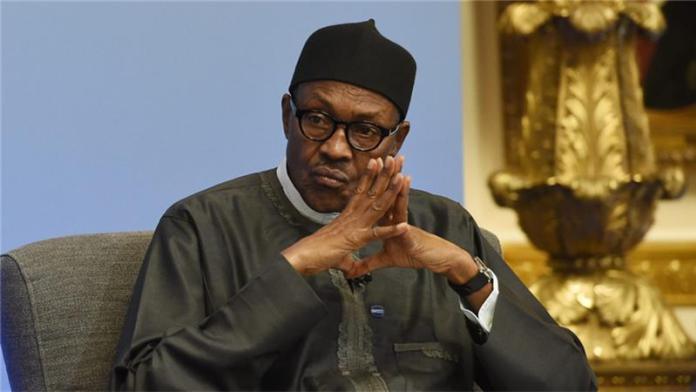Sparking Indigenous Models to End Nigeria’s Myriad of Problems
By Jamilu Mukhtar
INFOMEDIA – This week, I’m compelled to return to active participation in the social media, especially Facebook, by a storm more powerful than hurricane Patricia, which I’ve forecasted moving with whole force toward our direction, Nigeria. It’s the storm of lack of reasoning and problem-solving techniques among our leaders and lack of discipline and self-control among the followers.
Although amongst the people that follow my postings, there are those who think that I support whatever economic policy garbage being sold out by the current administration. This is largely because they think I am still a staunch supporter of PMB, which is not true. I want to publicly declare that I am no longer a blind follower of this government, but a de-jure follower, for we are being led willy nilly. If we accept the name “Nigerians”, we are followers to those who are on the mantle of leadership. Anything short of this amounts to dissidence.
As Nigerians, we shouldn’t be carried away by geo-political agenda, ethno-religious sentiment or false democratic consciousness to wage a war of verbal attacks against our leaders. If we do, our difference with Islamic extremists in northern Nigeria or Niger Delta Militants is that they are armed and we are unarmed insurgents. Instead of wasting our precious time on abusing and insulting leaders, why can’t we come together and find a common solution?
I am not denying that genuine and polite criticisms are healthy, but it is unbecoming of a wise man to lose control while criticising certain policies by his government. What bothers me the most is how some of us, the youth, throw huge insults to their leaders. I know that there are people with different levels of literacy and civility in the country. But why would an ignorant come out in the open to say “Buhari ka mai damu inda ka samu kasarmu”, which literally means “take us back to the condition you found our country”, and you as an enlightened person to applaud him? Should you teach him manner or you should learn primitivity from him? What a paradox!
As a sociologist, with indepedent view of the social, economic and political realities of my country, I am quite aware of the fact that our government has taken a wrong direction right from the very beginning. This is because I prefer a context-based solution to every problem. I believe in developing indeginous models and theories, which will be used to squarely address social, economic and political issues peculiar to our country and even the continent. Where Western scholars’ ideas are borrowed, that should be done as an ad-hoc adoption before our local, national or continental models evolve. My obsession with indeginous models is driven by the belief that our historical, socio-cultural and geographical make-up are unique to us, and those of the Western World are unique to them.
Africa didn’t witness the Renaissance of the 14th to 16th Centuries and the Enlightenment of the 18th to 19th Centuries at the same time with the the Europe. The French and Industrial Revolutions occurred in Europe, but not in Africa (albeit their effects on the continent are enormous today, which is another topic of its own). I’m trying to detach Africa (and Nigeria in particular) from those historical events because the political and economic models being adopted by President Buhari today are more or less the off-shoots of those events. In other words, the Nigerian government policies dance in tune with neo-liberalism, to whom these political and economic revolutions were given birth. Neo-liberalism is, therefore, grand child of the Enlightenment period.
To me, this idea of metaphorical “copy and paste” is inimical to our country’s development. It is just like copying the model of other continents to paste it in another without critical analysis of whether they’re suitable and applicable. When the European countries developed these ideas, they did them to address their existential social, economic and political crises, not Africa’s or Nigeria’s.
Sadly, Nigeria has no existing indeginous model that take into cognizance the country’s peculiar socioeconomic realities. This is because our society is not only a “consumption society” in terms of everyday life goods and services – food, clothes, vehicles, telecommunication, etc – but also in terms of ideas. As a result, we are not only suffering from the poverty of per capita, national and continental income but also poverty of ideas.
Read Also:
Nigeria should have learned a lesson since the implementation of the Structural Adjustment Program (SAP) in 1986, because since then the country’s economy became pathologic. Instead of liberating the economy from the false paradigms of the Bretton Wood’s Institutions (notably, the World Bank and the IMF), each successive government has deepened the economy into a new brand quagmire. The only exception is the government of Late Gen. Abacha, which I knew it fought for the Nigeria’s self-determination but I doubt if itself tried to develop indigenous ideas.
Be it ideas or goods and services, Nigeria has folded hands, waiting for other countries or continent to produce what Nigerians would consume, while the world is increasingly becoming what I can call a “competitive village”. These countries are busy developing themselves, and they are living by the principle of the “survival of the fittest”. Do we think they can forego their global hegemonic struggle to come and lift us to greatness if we do not do it for ourselves by ourselves? We must be in a state of illusion if we think so.
Of course, the Nigerian Government is very wrong to be exacerbating the predicament of the citizens by borrowing this neo-liberal idea, but until Nigerians come together and seek for a common ground to design a common destiny, salvaging themselves from (the leaders and by implication, the foreign forces), solution to the current plight is not forthcoming.
There are many countries that tried to change their destinies through developing indeginous models for economic and political development, such as China, Rwanda, Ethiopia and Nordic countries. On the last, I recently realized, in an interview with the former Ambassador of Norway to Nigeria, that Norway has adopted a model that blended Christian doctrine and Socialism and it worked quite well for them.
If those countries can make it, why not Nigeria? However, there are conditions for achieving this.
First, there should be an attitudinal changes amongst Nigerians, especially the youth. Government should be just to the youth and then instil discipline in their minds. This is because their attitudes are shaped by the high-handedness of the Government and the deplorable economic condition they are left wallowing in.
The youth shouldn’t be seeing the leaders living luxurious lives, while the citizens are in economic hardship and the leaders to be singing to the citizens that inflation is unavoidable, that Covid-19 is the factor trying to drift Nigeria into another recession, that it’s crisis in the global oil market that shook the economy. If the citizens observe that the leaders are also suffering the way they are suffering, there wouldn’t be such widespread rage amongst the youth. But the leaders are announcing the message of fuel price increase in the comfort of their well furnished offices with AC, among other luxuries, and the citizens are on the streets, under the sun and in the rain, struggling to survive.
Yet, this can’t justify non- civic approach to issues by the citizens. Rancor and insults are not the appropriate means of addressing the issue. I believe that peaceful demonstration and non-violent protests can be done. The best way is to resort to a common ground for all Nigerians before they can institutionalize a responsive and pro-poor government. This common ground will also facilitate congruence between the Government and the citizens to understand our national problems and developing indeginous models (specific) to address them.
The government should also consider intellectuals as partners in national progress. It should encourage research that can lead to grounded theories and models to address problems contextual to the Nigerian socio-cultural, economic and political structures.
We have to understand that our population and our diversity is a blessing in disguise, if we can ponder. This is because each ethic group has its unique experience and characteristics that the others don’t. If combined and effectively utilised, these experiences and characteristics can help the nation to achieve greatness.
If we cannot understand and respect our differences and tolerate one another, we shouldn’t be deceiving ourselves with the catchphrase “Unity in Diversity” or “One People, Great Nation”. Why would we be self-deluded and be deceiving ourselves with the title “Giant of Africa”, while we are crowling?
Jamilu Ibrahim Mukhtar writes from Dutse, he can be reached via [email protected].
The views expressed in this article are the author’s own and do not necessarily reflect the editorial policy of INFOMEDIA



























